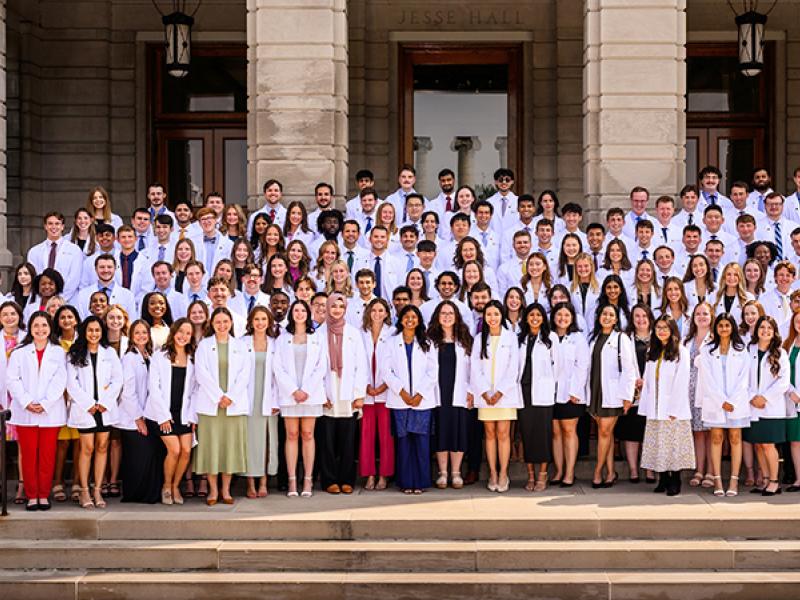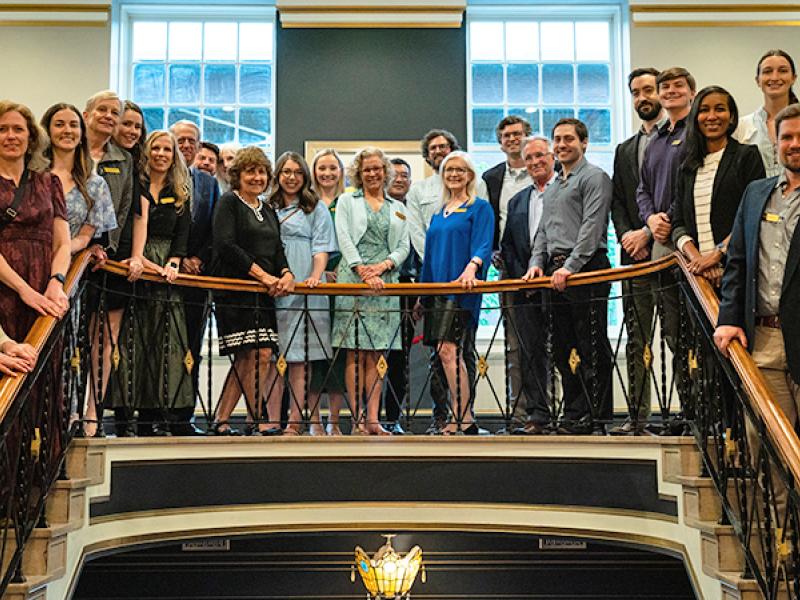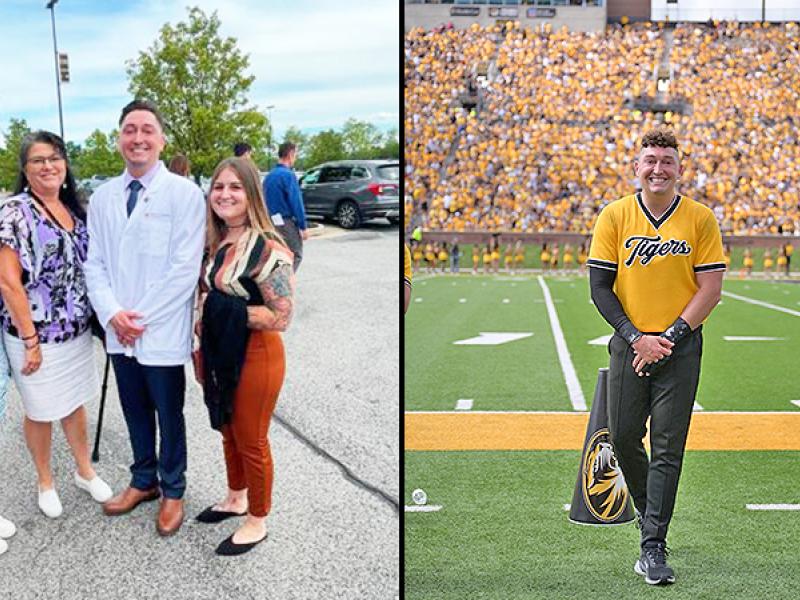Each year, University of Missouri Health Care and School of Medicine receive generous philanthropic contributions and commitments from alumni, patients, faculty, staff and friends. These loyal benefactors often designate their gifts for specific uses, including scholarship, patient care, program support, medical research, training and education, faculty support, capital enhancements, and technology. Other donors choose to make unrestricted gifts that can be directed to the areas of greatest need. Regardless of purpose or size, each gift makes a tremendous impact at MU’s academic health center.
Membership
Established in 1988 by the Medical School Foundation, the McAlester Society recognizes donors of cumulative giving of $50,000 or more for the important role they play in advancing MU’s academic health center. These esteemed donors hold a close, long-term interest in medical education, research, training and patient care at the University of Missouri. Sustaining memberships recognize benefactors who have lifetime giving to MU Health Care and/or School of Medicine through gifts and pledges* at the following levels:
Membership Levels
| Membership Level | Gifts and Pledges |
|---|---|
| Member | $50,000 |
| Fellow | $100,000 |
| Distinguished Fellow | $250,000 |
| Very Distinguished Fellow | $500,000 |
| Diplomat | $1 million |
| Ambassador | $5 million |
Sustaining members of the McAlester Society also qualify for membership in the Jefferson Club, the University’s premier donor recognition society.
*Pledges must be fulfilled within a five-year period.
MU benefit-eligible faculty and staff membership levels are half the amounts listed above.
Andrew W. McAlester, MD
1841-1922
Dr. Andrew W. McAlester symbolizes the vision and energy that have shaped health sciences at the University of Missouri into a model for academic health centers nationwide. A staunch advocate in establishing the nation’s first public medical school west of the Mississippi River, Dr. McAlester is widely recognized as the “father” of the University of Missouri School of Medicine, having served as its dean from 1880 to 1909. In addition, McAlester understood that clinical practice was essential for medical education and was appointed superintendent of the newly completed Parker Hospital – the precursor to University Hospital – when it opened its doors on October 20, 1901. More than just a learning lab, the hospital was charged with caring for mid-Missourians, including those who couldn’t afford care elsewhere - a legacy that remains today.





